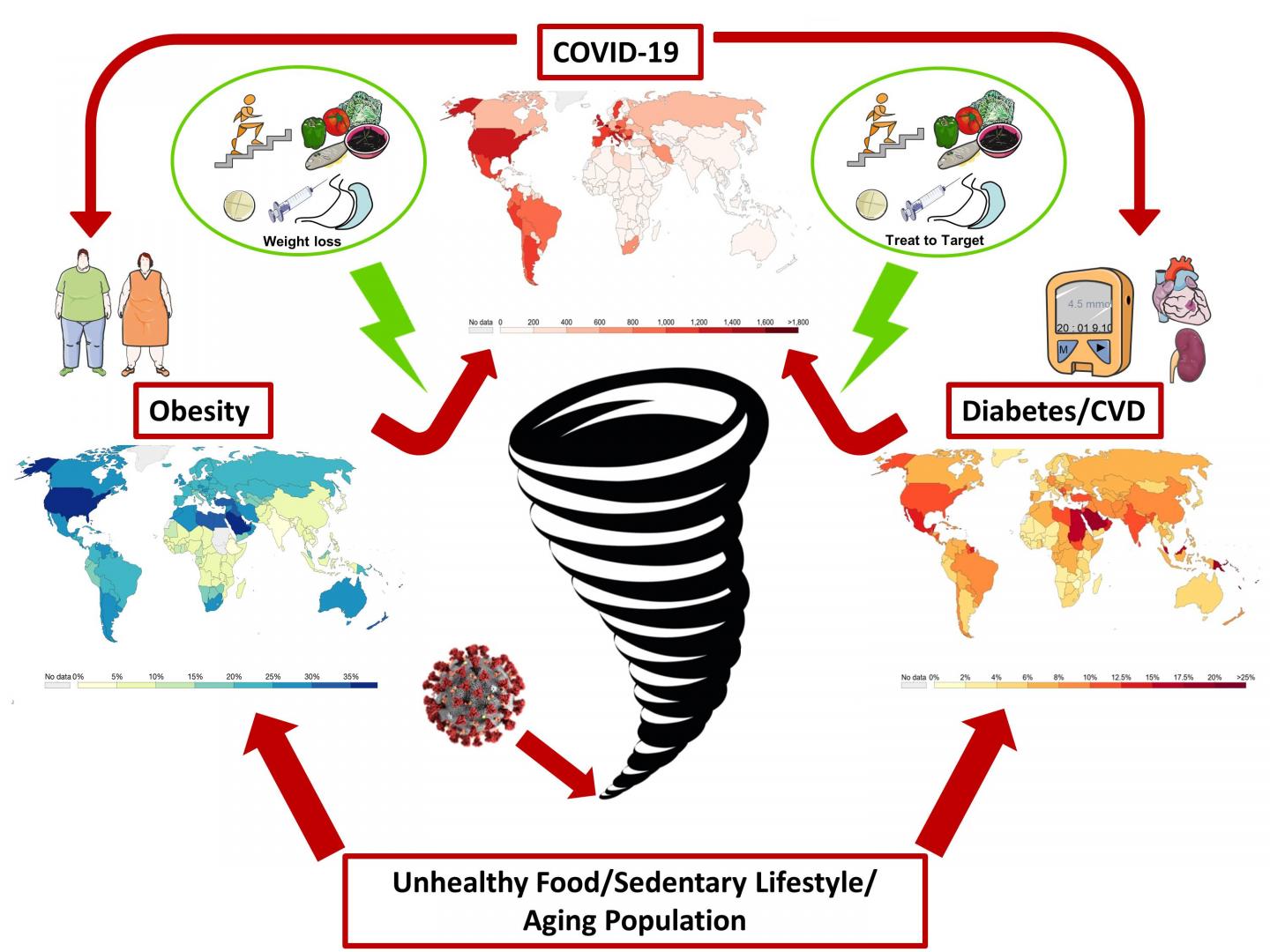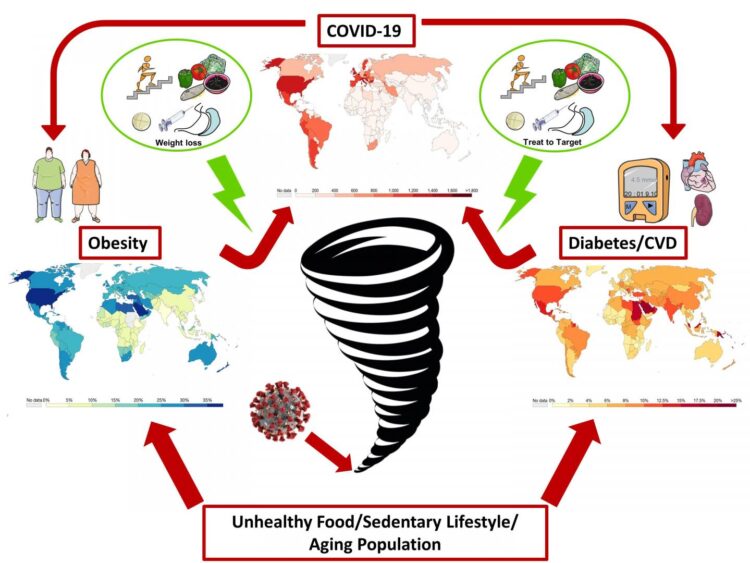
Credit: Norbert Stefan
In a Nature Reviews Endocrinology article authors from the German Center for Diabetes Research (DZD) highlight the interconnection of obesity and impaired metabolic health with the severity of COVID-19. First, they provide information about the independent relationships of obesity, disproportionate fat distribution and impaired metabolic health with the severity of COVID-19. Then they discuss mechanisms for a complicated course of COVID-19 and how this disease may impact on the global obesity and cardiometabolic pandemics. Finally, they provide recommendations for prevention and treatment in clinical practice and in the public health sector to combat these global pandemics.
Norbert Stefan, Andreas Birkenfeld and Matthias Schulze summarize and discuss data from large and well-performed studies that investigated independent relationships of obesity with the severity of COVID-19. Thereby, they can disentangle the contribution of obesity, visceral fatness and impaired metabolic health for the course of COVID-19. In this respect they found convincing evidence that obesity and overt diabetes, but also visceral obesity and even mild hyperglycemia, represent important risk factors for the disease course. Thus, these risk factors most probably may have an additive effect on the severity of COVID-19.
Then they discuss the impact of the SARS-CoV-2 infection on organ function, focusing on the cardiometabolically relevant tissues and organs as the vessel wall, heart, kidneys, liver, gut and pancreas. Thereby, they address both, the immediate damage of COVID-19 to the organs and the long-term effects of the disease, most probably boosting the development of obesity and cardiometabolic diseases. Thus, obesity and cardiometabolic diseases do not only trigger a more severe course of COVID-19, the SARS-CoV-2 infection does promote the development of these conditions.
The authors further highlight how treatment of obesity and impaired cardiometabolic health helps to avert a severe COVID-19 in patients infected with SARS-CoV-2. In this respect health professionals and politicians should now, more than ever, promote the health benefits of physical activity and support efforts to implement programmes and policies to facilitate increased physical activity and to promote a healthy diet. This might not only be relevant to directly reduce the burden of COVID-19 related morbidity and mortality among those infected, but may also be important in the context of SARS-CoV-2 vaccination, where response should be carefully evaluated in patients with obesity and/or diabetes mellitus, because of a potentially reduced or shortened response.
###
Publication:
Stefan N, Birkenfeld AL, Schulze MB. Global pandemics interconnected – obesity, impaired metabolic health and COVID-19. Nat Rev Endocrinol. 2021, doi.org/10.1038/s41574-020-00462-1
Contact:
Prof. Norbert Stefan
German Center for Diabetes Research
Department of Internal Medicine IV
Tübingen University Hospital
Otfried-Müller-Str. 10, 72076 Tübingen, Germany
Phone: +49 (0)7071 29-80390
Email: [email protected]
The German Center for Diabetes Research (DZD) is one of six German Centers for Health Research. It brings together experts in the field of diabetes research and integrates basic research, epidemiology, and clinical applications. By adopting an innovative, integrative approach to research, the DZD aims to make a substantial contribution to the successful personalized prevention, diagnosis and treatment of diabetes mellitus. The members of the DZD are Helmholtz Zentrum München – German Research Center for Environmental Health, the German Diabetes Center (DDZ) in Düsseldorf, the German Institute of Human Nutrition (DIfE) in Potsdam-Rehbrücke, the Institute of Diabetes Research and Metabolic Diseases of Helmholtz Zentrum München at the University of Tübingen, the Paul Langerhans Institute Dresden of Helmholtz Zentrum München at the Carl Gustav Carus University Hospital of TU Dresden, associated partners at the universities in Heidelberg, Cologne, Leipzig, Lübeck and Munich, and other project partners. http://www.
Media Contact
Birgit Niesing
[email protected]
Related Journal Article
http://dx.





